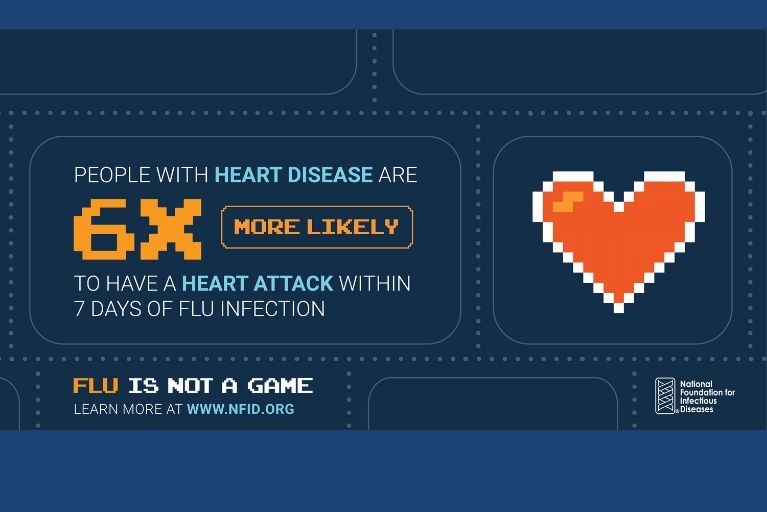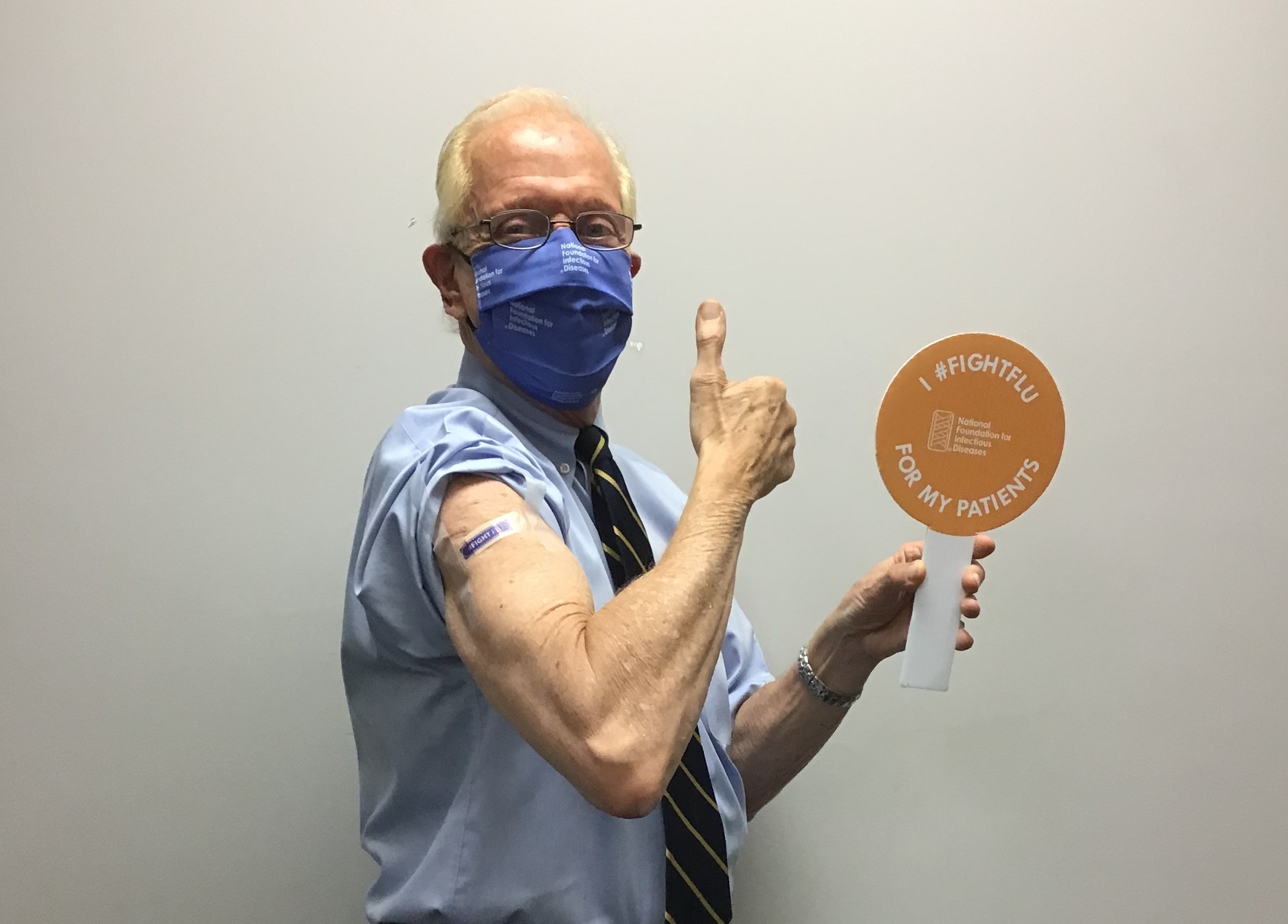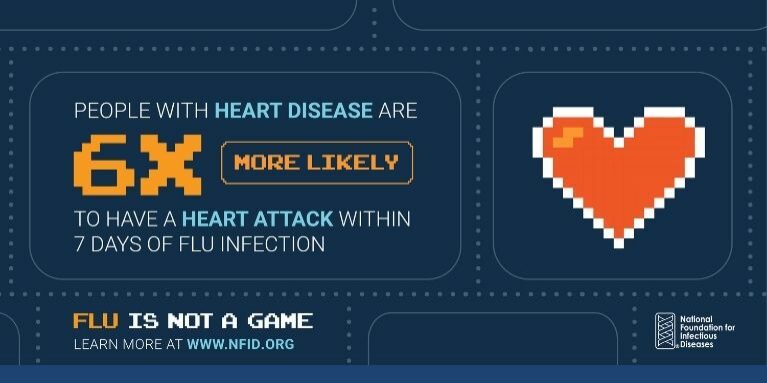
In the US, heart disease is a leading cause of death, causing one in four deaths. To help raise awareness about the importance of a heart-healthy lifestyle, American Heart Month is observed in the US each February, making it the perfect time for healthcare professionals to talk with at-risk patients about the need to stay up to date on all recommended vaccines.
A lot of people don’t know that when you have flu it can increase your chances of having a stroke or heart-related issue.
Kelly, Stroke Survivor
Those with heart disease and stroke are at higher risk for serious complications from respiratory diseases including COVID-19, influenza (flu), respiratory syncytial virus (RSV), and pneumococcal disease. Even when well-controlled, chronic health conditions, including heart disease, can put individuals at higher risk for hospitalization, catastrophic disability, and even death:
- People with heart disease are 6 times more likely to have a heart attack within 7 days of a flu infection
- COVID-19 can damage the respiratory system and make it harder for the heart to function properly
- Pneumococcal pneumonia causes an estimated 150,000 hospitalizations each year in the US, and about 1 in 20 individuals who get pneumococcal pneumonia will die
- RSV is estimated to cause 177,000 hospitalizations, and 14,000 deaths in adults age 65 years and older annually
There are safe, effective vaccines that can help protect people living with heart disease from COVID-19, flu, and pneumococcal disease, and these vaccines can safely be given at the same time.
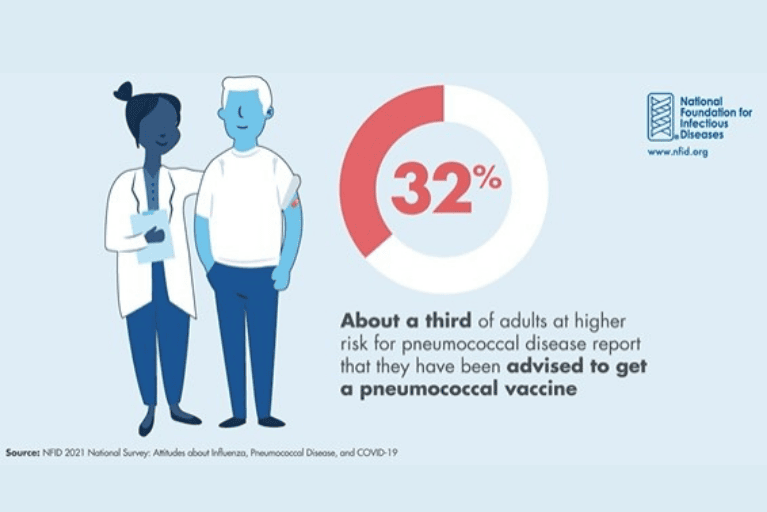
Despite being at increased risk, survey data from the National Foundation for Infectious Diseases (NFID) show a lack awareness among people with heart disease about the importance of annual flu vaccination. Recent NFID survey results found that 36 percent of patients with a heart condition said they were not advised about the potentially serious consequences of flu. Additionally, only a third (32 percent) of those at higher risk, including adults with heart disease, have been advised to get vaccinated against pneumococcal disease. The good news is that among those who are advised to get vaccinated, the majority do so.
As healthcare professionals, our recommendations matter. We need to insist that our patients are up to date on pneumococcal and flu vaccines. We have some work to do.
NFID Medical Director William Schaffner, MD
Make a Strong Case for Vaccination
American Heart Month is the perfect time to talk to patients with heart disease about the importance of vaccination. NFID offers complimentary tools and resources to help healthcare professionals have productive conversations with patients:
- LowerYourFluRisk videos, graphics, and fact sheets
- Closing the Gap: Protecting Adults with Chronic Health Conditions (on-demand webinar)
- COVID-19 Communications resources to help reinforce best practices in communicating about COVID-19 public health guidelines
To join the conversation and get the latest news on infectious diseases, follow NFID on Twitter using the hashtag #LowerYourFluRisk, like us on Facebook, follow us on Instagram, visit us on LinkedIn, and subscribe to receive future NFID Updates.
Related Posts

Vaccines and Heart Health: A Vital Connection
Heart disease can increase the risk of serious or fatal complications from respiratory diseases including COVID-19, flu, and RSV
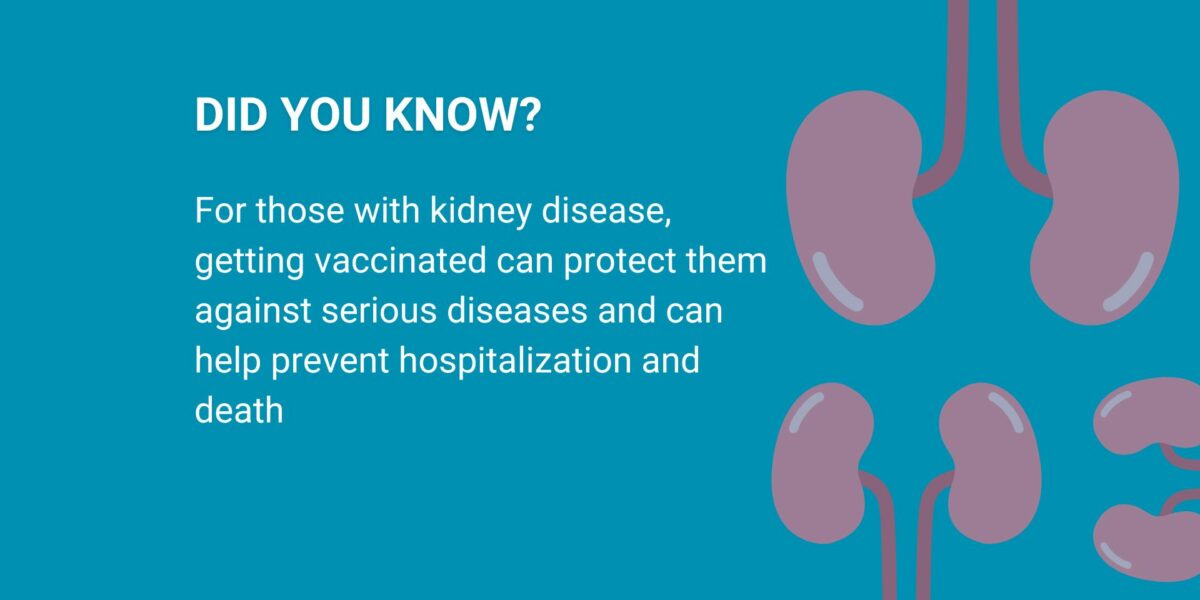
3 Things You Need to Know about Kidney Disease and Vaccines
It is important for people with kidney disease to understand how critical vaccination can be for their health and well-being

5 Reasons Why Vaccines Are Good for Your Heart
For people with heart disease, getting vaccinated is as important to staying healthy as diet and exercise


